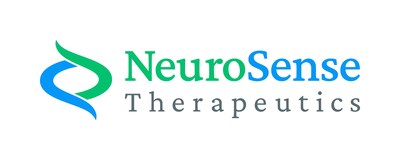NeuroSense Therapeutics Reports Positive Final Results from Alzheimer's Biomarker Study
NeuroSense Therapeutics (NASDAQ: NRSN) has reported positive results from a biomarker study evaluating its combination therapy for Alzheimer's disease (AD). The study found elevated levels of TDP-43, a novel biomarker, in AD patients compared to healthy controls. NeuroSense plans to expand the study to further validate these findings and anticipates starting a Phase 2 double-blind proof-of-concept clinical trial in the first half of 2023. TDP-43's relevance in AD is highlighted by its association with cognitive impairment severity, presenting potential for NeuroSense's therapy in addressing significant unmet medical needs in neurodegenerative diseases.
- Elevated TDP-43 levels in Alzheimer's patients indicating potential efficacy of combination therapy.
- Plans to commence Phase 2 double-blind proof-of-concept study in H1 2023.
- None.
- Elevated levels of novel biomarker TDP-43 in Alzheimer's disease (AD) show the therapeutic potential of NeuroSense's combination platform
- Phase 2 double-blind proof-of-concept clinical study expected to commence in H1 2023

TDP-43 has been known to colocalize with senile plaques and neurofibrillary tangles, suggesting a direct interaction between TDP-43 and amyloid-β (Aβ) or tau, which are known to be hallmark biomarkers in AD. TDP-43 has been found in up to
NeuroSense's platform combination therapy technology has already shown a statistically significant reduction of TDP-43 in a Phase 2a clinical trial biomarker study in another neurodegenerative disease, amyotrophic lateral sclerosis (ALS), and is now being evaluated in a Phase 2b ALS double-blind clinical trial.
NeuroSense believes these most recent biomarker results show the importance of TDP-43 pathology in AD and suggest the potential efficacy of NeuroSense's platform technology in Alzheimer's disease.
NeuroSense plans to commence a Phase 2 double-blind proof-of-concept study in Alzheimer's disease in the first half of 2023.
About Alzheimer's Disease
Alzheimer's disease (AD) is the most common form of progressive dementia, affecting 5
About TDP-43
Transactive response DNA binding protein of 43 kDa (TDP-43) is involved in regulation of gene expression. AD patients with TDP-43 pathology have increased severity of cognitive impairment compared to those without TDP-43 pathology. Additionally, the strongest genetic risk factor for AD, apolipoprotein E4 (APOE4), is associated with increased frequency of TDP-43 pathology.[1]
About NDEs
NeuroSense's biomarker study utilized neuronal-derived exosomes (NDEs) extracted from plasma. NDEs are small extracellular vesicles (EVs) generated by neurons that encapsulate a variety of molecules such as proteins, nucleic acids, and metabolites. ExoSORT™ by NeuroDex was used to identify NDEs in this biomarker study. Identification of NDEs and their cargo in body fluids can facilitate the discovery of new biomarkers for prognosis and therapy, as these vesicles can pass the blood-brain barrier (BBB) and provide a depiction of the current physiological status of neurons in the brain.
About NeuroSense
For additional information, we invite you to visit our website and follow us on LinkedIn and Twitter.
Forward-Looking Statements
This press release contains "forward-looking statements" that are subject to substantial risks and uncertainties. All statements, other than statements of historical fact, contained in this press release are forward-looking statements. Forward-looking statements contained in this press release may be identified by the use of words such as "anticipate," "believe," "contemplate," "could," "estimate," "expect," "intend," "seek," "may," "might," "plan," "potential," "predict," "project," "target," "aim," "should," "will" "would," or the negative of these words or other similar expressions, although not all forward-looking statements contain these words. Forward-looking statements are based on
Logo - https://mma.prnewswire.com/media/1707291/NeuroSense_Therapeutics_Logo.jpg
[1] Meneses, A., Koga, S., O'Leary, J. et al. TDP-43 Pathology in Alzheimer's Disease. Mol Neurodegeneration 16, 84 (2021). https://doi.org/10.1186/s13024-021-00503-x
![]() View original content:https://www.prnewswire.com/news-releases/neurosense-therapeutics-reports-positive-final-results-from-alzheimers-biomarker-study-301725883.html
View original content:https://www.prnewswire.com/news-releases/neurosense-therapeutics-reports-positive-final-results-from-alzheimers-biomarker-study-301725883.html
SOURCE NeuroSense







